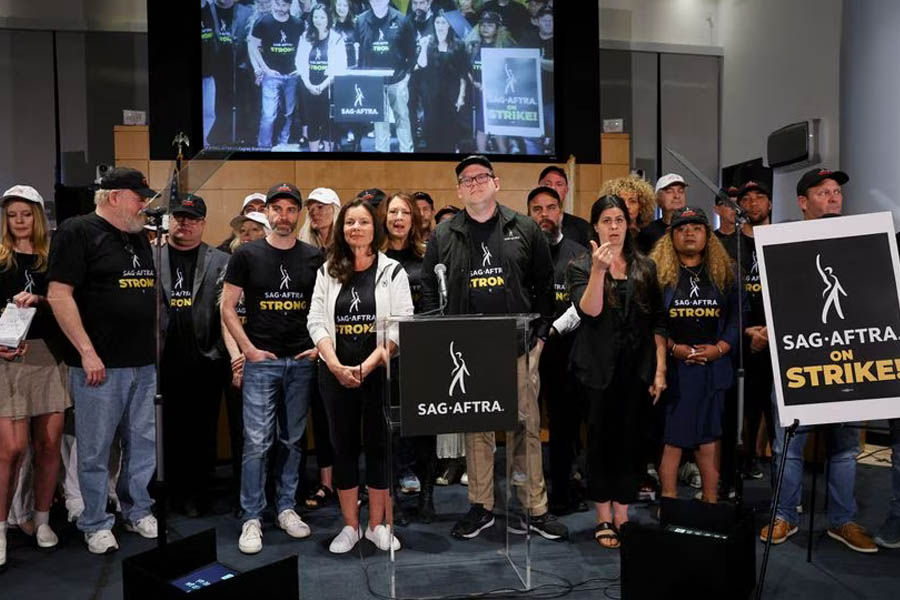
Hollywood is witnessing an exceptional and prolonged crisis as a 43-year strike takes center stage, bringing to light the challenges posed by the streaming economy. With over 160,000 organized artists participating in the protest, last Friday marked a historic moment as the largest Hollywood strike since 1960.
The strike, initiated by 11,500 screenwriters, reflects the growing frustration among artists over the widening gap between the salaries of Hollywood's elite and those working in the streaming industry. Artists expressed concern about the impact of machine intelligence (AI) on their profession, fearing that their livelihoods could be at risk.
Fran Drescher, president of the artists' union, emphasized the uncertainty prevalent in Hollywood, stating, "Until I was acting in The Nanny, everyone was getting a lot of money even though I did little work. Now there is a situation of uncertainty."
Moreover, the traditional pillars of Hollywood, the box office, and television channels, have both suffered setbacks. Despite hopes for a post-pandemic revival, the film business experienced a 21 percent decrease in ticket sales compared to 2019, as reported by ComScore. The once-anticipated cultural resurgence of theaters faced a significant downturn.
Amid the declining ticket sales, blockbuster films like 'Spider-Man: Across the Spider-Verse,' 'Indiana Jones and the Dial of Destiny,' 'Elemental,' 'The Flash,' 'Shazam! Fury of the Gods,' 'The Little Mermaid,' and 'Fast X' faced disappointing reception, leading to disappointment among producers and actors.
Looking ahead, worldwide Hollywood ticket sales are predicted to reach $7.2 billion by 2027, down from the $7.9 billion in 2019, marking a decline in box office revenue. In addition, cable and satellite television subscriptions are dwindling, projected to reduce to 50 million by 2027 from 100 million seven years ago. Presently, the number of subscribers stands at 64 million.
Mitchell Nathanson, a broadcast analyst, remarked, "Traditional television viewership has declined significantly," underlining the shift towards online streaming platforms like Disney Plus, HBO Max, Hulu, Paramount+, and Peacock. As a result, major Hollywood companies have increased investments in online broadcasting, with Netflix, Amazon, and Apple leading the charge.
The influx of technology companies into the entertainment industry has altered the landscape, with media veteran Barry Diller asserting that entertainment is no longer solely a business priority but a part of everyone's lives. Hollywood studios are adapting to this transformation, with Netflix, Disney Plus, and Paramount Plus showing profitability, although job cuts and a halt in new program productions have occurred.
The ongoing artists' union strike is likely to affect the profitability of online broadcasting in the short term. However, it remains uncertain whether the demands of the artists will be fully met, leading to potential challenges for the streaming industry.
The current situation in Hollywood has led to a unique and unprecedented level of anger and tension. Last Friday's protest saw artists expressing strong opposition to online broadcasts, claiming they were not receiving the salaries they were promised in their contracts. As studios prepare to meet with writers and artists in the coming week, the future of Hollywood's entertainment industry remains uncertain. While artists advocate for fair treatment and compensation, the challenges posed by the streaming era and the evolving landscape of entertainment continue to shape the industry's fate.